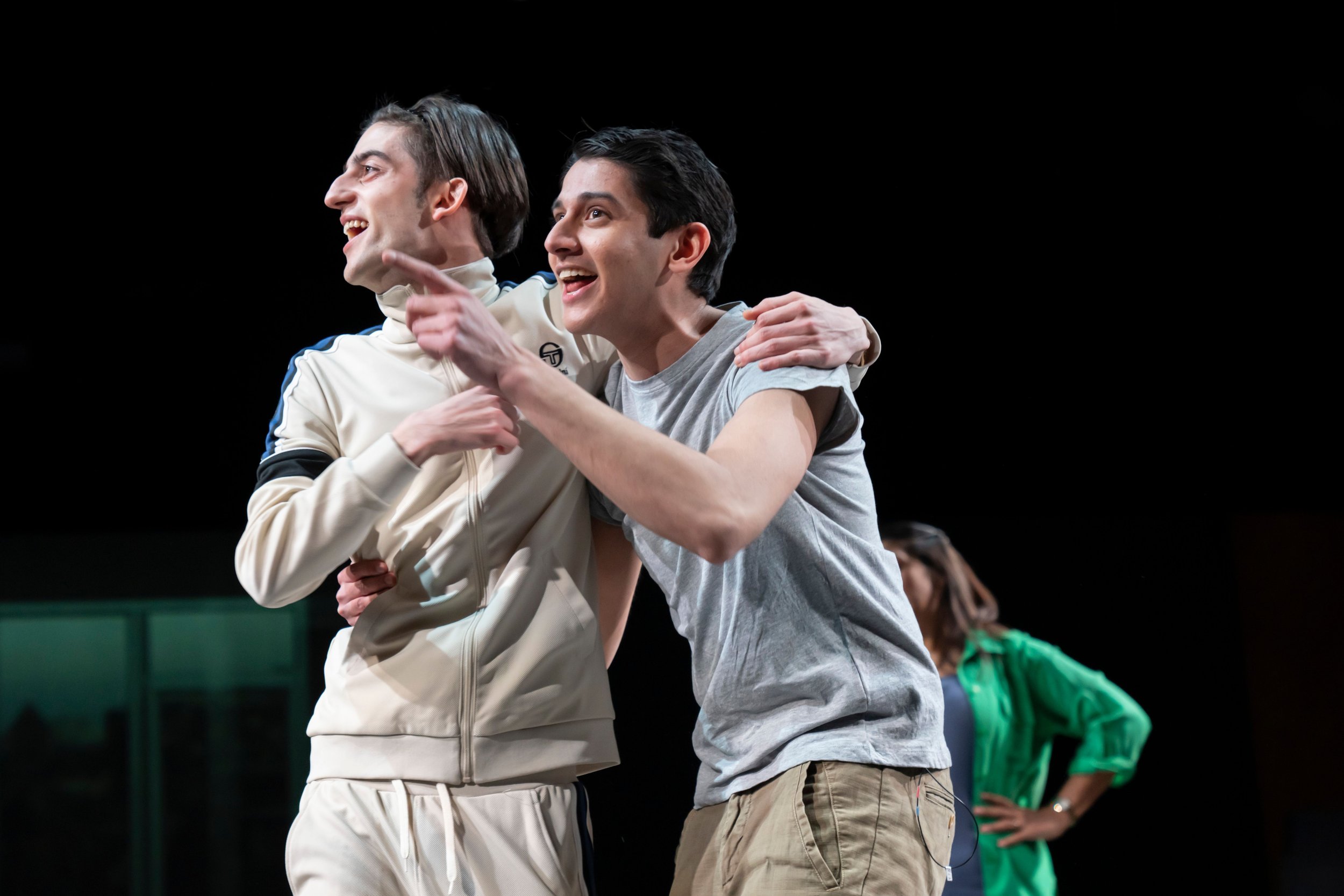Review: 'Our Generation' by Alecky Blythe
Noëlle Gaumann reviews and details a captivating reception of ‘Our Generation’, a play about an entire generation in the present day, at the National Theatre.
It was a cold, rainy evening and the wind was strong when I made my way to the National Theatre from North London. It was during the Tube strike, and as a result streets were crammed with cars and buses, moving one inch at a time in a slow, steady crawl. The faces of passers-by were disgruntled. Due to the strike, my bus failed to materialise and I had to switch routes. At the end, I was hurrying over Millennium Bridge in the rain, running and puffing, catching glimpses of the foggy London landscape around me.
Even in my rush I was forty minutes late to the play. After being ushered in at an appropriate time, I witnessed my first scene of this 212-scenes long, almost operatic-scale play. Despite the transport delays and painfully long journeys it must have taken people to get there, almost every seat was filled. The stage setting was simple with limited props. The theatre’s atmosphere was jovial and light-hearted. Writer Alecky Blythe’s ‘Our Generation’ attempts to illustrate the different nuances in how personalities take shape at this early age. The play follows the lives of several young people from teenagers to young adults heading off to university. The individual stories take place across the UK – from Birmingham to Glasgow, from Belfast to South London. We experience their journey through school, the pressure of exams – it seems that there is always some exam lurking around the corner – girlfriends, boyfriends, sex, university, first work experience, and the pandemic. The play addresses a multitude of topics: body image, technology, phone addiction, social media, abusive relationships with both parents and partners, terror attacks, drug use, bullying, the teenage feeling of alienation, the overeagerness of some, the desire to impress peers, subtleties in body language, nervous ticks, the impact of lockdown. These are intricate topics but director Daniel Evans pulls off this odyssey of a play eloquently and elegantly.
Hélder Fernandes (Luan) and Dee Ahluwalia (Zac, Drin) in Our Generation at the National Theatre. Photo by Johan Persson_37392.jpg
Writing a play about an entire generation is a highly ambitious endeavour. While the play’s length seems daunting, its running time perfectly suits the expansive list of topics explored. Our Generation is a verbatim play: all of the dialogue is taken directly from real conversations and interviews collected over the course of five years as commissioned by the National Theatre. The method fits the content well; every word in the play was actually spoken by a British teenager or their parents over the last five years. While this could have the effect of an awkwardly-put together patchwork of lines, the play moves smoothly, effortlessly, and precisely because of its dialogue’s originality. Another unique factor is that the young actors do not simply act out the collected material but also give life to the vocal mannerisms and intonations; the resulting authenticity is striking.
Because the words were first spoken to an interviewer, it creates the impression that these children are engaging actively with the audience. Occasionally, one can sense the playwright’s overeagerness at discovering a brilliant line alongside the way it is positioned within the dialogue like a well-wrapped gift. The uniqueness of the commentary is peculiar, surprising, often hilarious. The audience gets the impression that they can access multiple micro-universes over the course of the play, each with incredible detail. There is commentary on Boris Johnson in decidedly unhappy terms, Brexit, first time sex, mental health issues, the difficulties of learning at home in a household with many siblings, and the joy of getting a plant, something little, alive, just for yourself.
Rachelle Diedericks (Ierum), Anushka Chakravarti (Ayesha), Stephanie Street (Luljeta) & Anna Burnett (Robyn) in Our Generation at the NT. Photo by Johan Persson_35351.jpg
The play is executed brilliantly by a company of excellent actors and actresses. Special recognition should be paid to Debbie Chazen, Hasan Dixon, and Stephanie Street who play all of the various adult roles.
Watching the play, you can almost sense when the children begin to feel at ease around the person who interviewed them. They truly open up about difficult but also simple, everyday things like their first time having sex, insecurities, and their body. Act II, in particular, has a vivid sense of warmth to it: we can see that with time these children have learned to trust their interviewer with deeply personal things. The children are never ridiculed, nor their experiences minimised – the screenplay does not allow it. If the audience laughs it is because they laugh with the children.
Overall, the play is an excellent portrayal of growing into adulthood and its challenges and victories in such tumultuous times.



